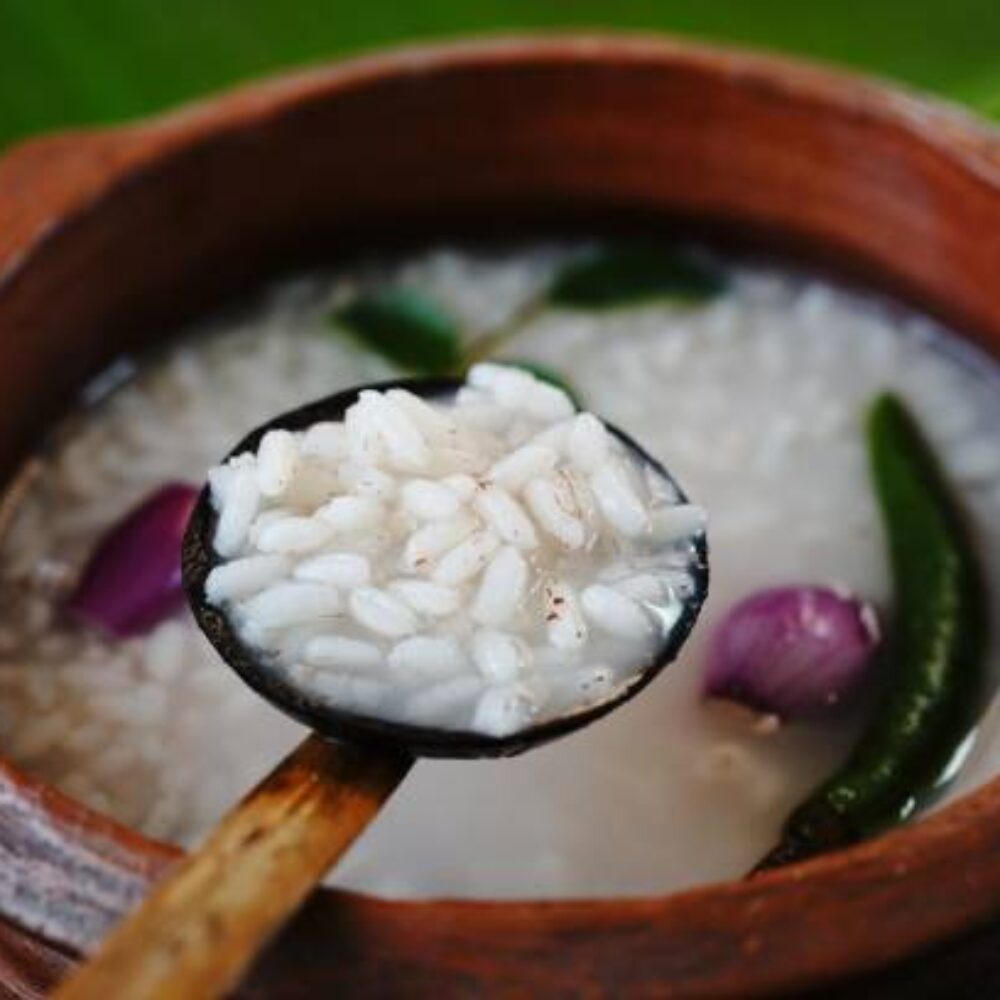When it comes to taking care of your gut, superfoods for gut health like sajina (Moringa) and chia seeds are some of the best options out there.
These nutrient-containing foods not only help improve digestion but also support your immune system and overall health.
Sajina is known for its natural ability to fight digestive issues, while chia seeds are great for keeping things moving smoothly in your stomach.
Let’s learn about the amazing benefits of these superfoods.
Sajina (moringa oleifera drumstick tree)
The scientific name of Sajina is “Moringa oleifera.” It is called the ‘drumstick tree‘ in English because of the shape of the seed pods.
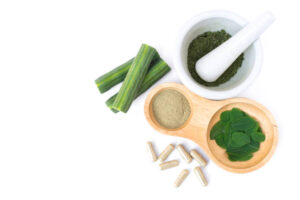
According to the Food and Agriculture Organization of the United Nations (FAO), Sajina is native to South Asia. It grows almost all over the world except in colder countries.
Sajina is used in traditional treatments for diseases such as gonorrhea or malaria in the region.
Along with its nutritional and medicinal properties, sajina is called the wonder tree, nutritional dynamite, and superfood for gut health.
Sajina leaves are rich in minerals and vitamins. In addition to potassium, calcium, magnesium, zinc, vitamin A, and vitamin C, they contain protein and carbohydrates. By combining many nutrients, they boost the body’s immunity.
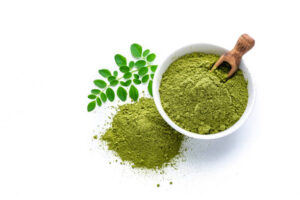
Nutritional value of Superfoods Sajina leaves per 100 g:
| Nutrient | Amount per |
|---|---|
| Energy | 64 kcal |
| Protein | 9.4 g |
| Fat | 1.4 g |
| Carbohydrates | 8.3 g |
| Fiber | 2 g |
| Calcium | 185 mg |
| Iron | 4 mg |
| Potassium | 337 mg |
| Vitamin A | 3780 IU |
| Vitamin C | 51.7 mg |
| Magnesium | 42 mg |
Why is sajina called (moringa oleifera drumstick tree) Superfoods for Gut Health?
Sajina leaves are beneficial for gut health. They assist in reducing various digestive problems like indigestion, excess gas accumulation in the stomach, and heartburn. They also help relieve constipation.
Sajina leaves are rich in antimicrobial and antibacterial compounds, which help fight skin infections, urinary tract infections, and digestive problems.
Sajina leaves are also beneficial for:
- Disease Prevention
- Maintaining hormonal balance
- Increasing testosterone hormone in men
- Acting as an anti-inflammatory, relieving various body pains
- Playing a role in the protection of bones and teeth due to their richness in calcium and phosphorus
- Sajina leaves contain vitamin C, acting as an antioxidant that prevents skin from showing signs of aging.
- Sajina leaves contain vitamin A, which helps in maintaining healthy eyes.
Moringa leaves tea
Enjoy a simple and healthy Sajina (Moringa) leaves tea with this easy recipe:
What You Need:
- 1 cup fresh Sajina (Moringa) leaves (or 1-2 teaspoons dried leaves or powder)
- 2 cups water
- Honey (optional)
- Lemon juice (optional)
How to Make It:
- Wash fresh Sajina leaves well. If using dried leaves or powder, don’t need to do anything
- Heat 2 cups of water in a pot until it starts boiling.
- Put the Sajina leaves into the boiling water. Turn the heat to low and let it simmer for 5-7 minutes.
- Pour the tea through a strainer into your cup to remove the leaves.
- Add a little honey for sweetness or a few drops of lemon juice for a zesty taste.
- Drink this moringa leaves tea
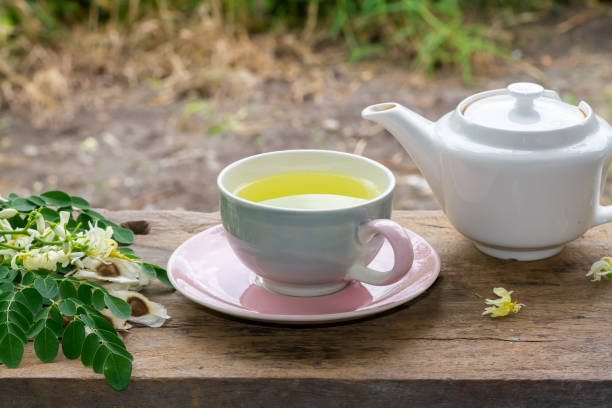
Warning:
- Consuming too many Sajina leaves can cause nausea, stomach problems, and loss of appetite.
- Apart from taking blood pressure medicine, taking Sajina leaf powder or juice regularly reduces blood pressure.
- The stems attached to the leaves contain harmful substances that can harm the immune system.
- Caution should be taken when consuming Sajina leaves during pregnancy.
Some Related Research and Resources for Superfood Sajina (moringa) Leaves
1. Traditionally, moringa has been used to treat wounds, pain, ulcers, liver disease, heart disease, cancer, and inflammation.
2. The leaves contain phytochemicals and antioxidants that have been shown in some research studies to reduce chronic inflammation.
Superfoods Chia Seed for Gut Health
Chia seeds are also a superfood for gut health. They contain 5 times more calcium than milk, 7 times more vitamin C than oranges, 3 times more iron than spinach, twice the potassium of bananas, 3 times more protein than chicken eggs, and 8 times more omega-3 than salmon.
Chia is the seed of the mint plant called Salvia hispanica, primarily grown in the desert regions of Central America and Mexico. Experts suggest it was part of the ancient Aztec diet. Chia seeds resemble basil seeds, are white and black, and are small like sesame seeds.
However, many people are unaware of the nutritional value of chia seeds or how to incorporate this superfood into their diet.
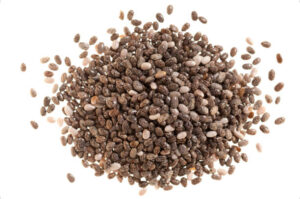
Nutritional value of chia seeds:
Nutritionists consider chia seeds a superfood due to their high content of omega-3 fatty acids, antioxidants such as quercetin, kaempferol, chlorogenic acid, caffeic acid, potassium, magnesium, iron, calcium, and soluble and insoluble dietary fiber.
Here is the nutritional value of chia seeds per 28 grams (about 2 tablespoons):
| Nutrient | Amount |
|---|---|
| Calories | 138 kcal |
| Protein | 4.7 g |
| Fat | 8.7 g |
| Saturated Fat | 0.9 g |
| Omega-3 Fatty Acids | 4.9 g |
| Omega-6 Fatty Acids | 1.6 g |
| Carbohydrates | 12 g |
| Fiber | 9.8 g |
| Sugar | 0 g |
| Calcium | 179 mg |
| Iron | 2.2 mg |
| Magnesium | 95 mg |
| Phosphorus | 244 mg |
| Potassium | 115 mg |
| Zinc | 1.0 mg |
This nutritious food can be consumed daily, but benefits are seen with consumption over 3-4 days.
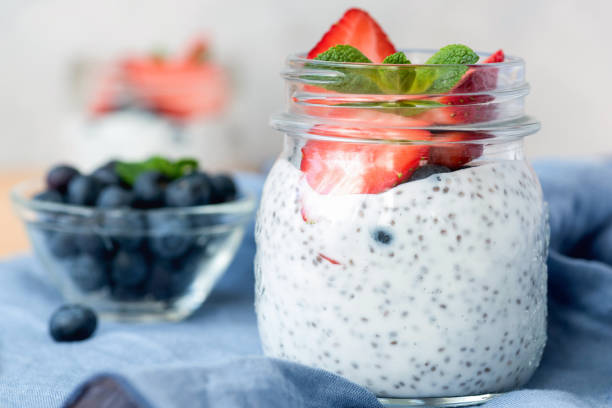
Why is chia seed called Superfoods for Gut Health?
Chia seeds are a good source of fiber and omega-3 fatty acids, which can reduce inflammation and support healthy digestion.
The omega-3 fatty acids and caffeic acid in chia seeds may reduce gut inflammation, alleviating symptoms of irritable bowel syndrome (IBS) such as abdominal pain, bloating, and diarrhea.
Some more benefits of eating chia seeds:
- Chia seeds contain omega-3, which helps reduce the risk of heart disease and harmful cholesterol.
- They enhance body strength and performance.
- Rich in antioxidants, chia seeds boost the immune system.
- They aid in weight loss by improving the metabolic system.
- Chia seeds help maintain normal blood sugar levels, reducing the risk of diabetes.
- They are rich in calcium, which is particularly beneficial for bone health.
- Chia seeds promote colon health, potentially reducing the risk of colon cancer.
- They assist in detoxifying the body.
- Chia seeds alleviate stomach inflammation and gas problems.
- They contribute to better sleep.
- Chia seeds have potential cancer-preventive properties.
- They aid digestion.
- Chia seeds alleviate knee and joint pain.
- They may help manage attention deficit hyperactivity disorder (ADHD).
- They promote healthy skin, hair, and nails.
Some Related Research and Resources for Superfood Chia Seed
1. The high fiber in chia seeds helps with digestion by adding bulk to stool, making it easier to have regular bowel movements and ease constipation.
2. A study published in Nutrition & Metabolism.
Caution:
1. Eating too much can cause gas or bloating, so start small and hydrate well.
2. Stop if you notice any allergic problems after eating chia seeds.
3. Chia seed may affect blood thinners or diabetes.
4. Be cautious if you have low blood pressure.
Adding superfoods for gut health like sajina and chia seeds into your diet can make a big difference. They’re natural, easy to add to your meals, and contain nutrients that improve your digestion.
Feel free to share your thoughts in the comments below and share it with friends and family. For more tips on improving your gut health, subscribe to our newsletter for the latest updates and expert advice.



